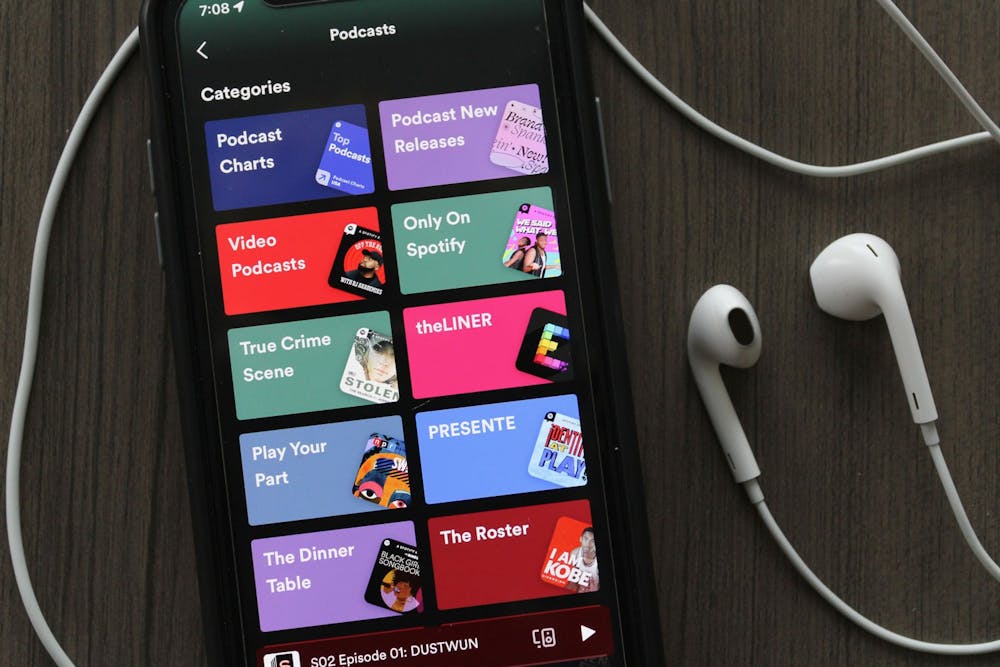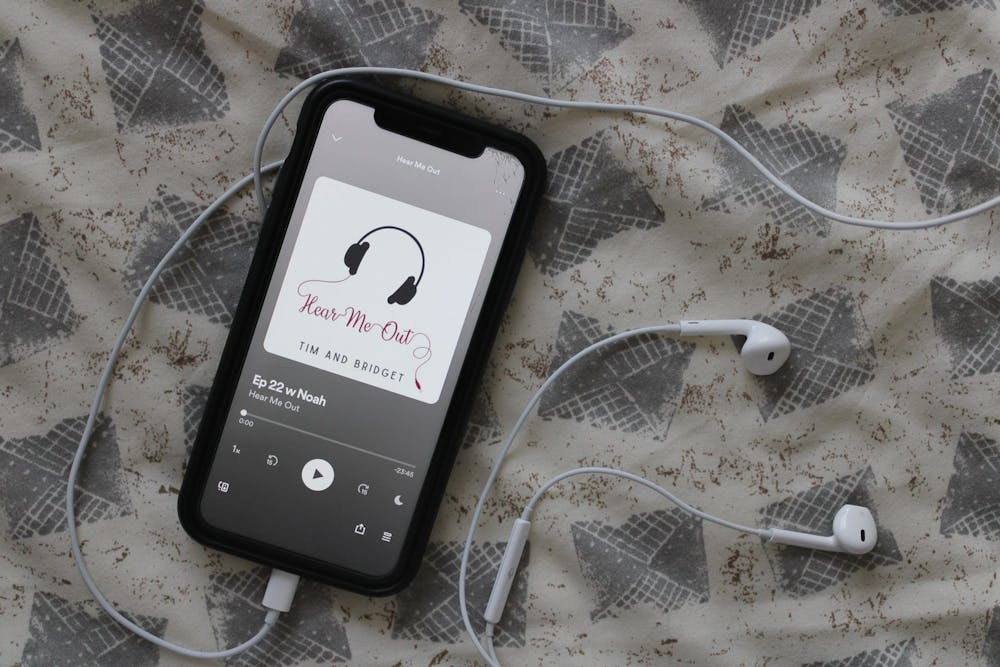In 2020, quarantine put an end to spontaneous human connection. There weren't any casual conversations with friends on the way to class. Nor was there any light-hearted small talk with your classmates. What there was, however, was a lot of weary silence and an unfulfilled desire for connection.
As a result, people were left feeling isolated. For many, podcasts partially filled the void caused by the distanced world of COVID-19. As the interactions sustaining our need for human connection were undermined, many fell into a melancholy numbness. Podcasts provided relief from that, even if it was just for an hour. The ability to enter a conversation simply by plugging in some earbuds is unmatched by other mediums; it allows for an intimacy that can’t be as easily captured in books or blogs. The host on the other end of the phone becomes a friend, dependable and constant.
Aidan Baker, who started his podcast called The Get Well Soon Podcast in October 2021, said, “It makes sense that a lot of people are starting to gravitate towards podcasts because that connection you can have with a host or with a guest can be really strong and powerful. People are searching for someone that understands them and that they can relate to and plenty of podcast hosts are those people or those friends.” Many conversation-based podcasts can offer the listener a sense of friendship and community, especially during times of loneliness.
During quarantine, I found myself turning to podcasts more than ever–and I am not the only one. Along with millions of others, Bridget Hughes, one of the student co-hosts of the mental health-focused podcast called Hear Me Out, started listening to podcasts during the pandemic. “I was never into podcasts before,” Hughes said. “And now I'm obsessed with listening.”
Podcasts can also tap into very niche topics, exposing communities that one might not have ever known existed. Timothy Simmons, Hughes’ co-host on Hear Me Out, says that this randomness is part of what he likes about podcasts. “Right now, I could find a podcast on historical ghost stories,” Simmons said. “Unless I was in a history club or something, I probably would not be privy to the knowledge.” Podcasts give a platform to a wide array of people, all with passions or interests that they want to share with the world. For instance, Spotify is awash with eccentric and surprisingly specific shows–shows that would make you wonder how there is enough content for a whole podcast on it.
Almost everyone has something they want to share with the world and podcasts give them the chance to do so. Part of what makes them so unique is their convenience; not everyone has the time to sit down and write a book, but almost everyone is willing to talk for 30 minutes. Through podcasts, a person can achieve just as much visibility as traditional mediums, but the process is, in most cases, simpler.

Baker prefers podcasts because of the subtleties that can be conveyed with voice. Blogs can be manicured and distanced, whereas Baker feels that podcasts are more “intimate and real and personal.” “Someone might read something and internalize it one way,” Baker said. But with podcasts, “there is nothing you can really hide behind.”
The fact that the audience has to listen to the host makes the experience seem conversational; books can be exclusionary with enigmatic language, but podcasts rarely pose that issue. As Hughes put it, podcasts are like “an effortless book” in that they are an accessible, less time-consuming way to take in content. Listeners can absorb information passively, perhaps while multitasking, in a way they can’t with books or blogs, which demand unwavering focus and attention. The flexibility of how and where you listen makes podcasts an attractive way to intake information; as a result, podcast popularity is rising. It can be hard to find the time to read, but anyone can fill some silent hours with a podcast. In fact, in 2021 weekly podcast listening grew by 17% from the year before. Simmons said “In a way podcasts are this generation's radio, except literally anyone can make a podcast. I enjoy that anyone can make a podcast and you do not need to be famous or a professional."
Podcasts permit a vulnerability on the part of both the host and guest: a quality Baker finds personal value in. A host's willingness to be open and honest with the audience is what makes many podcasts (primarily the conversational and wellness-based ones) so effective to audiences. However, people rarely consider how podcast hosts can be challenged by their own shows. In trying to help his listeners better themselves, Baker has found his podcast to be an unexpected opportunity for growth. "There is something very honest and uncomfortable about being behind a microphone that makes me a better person and more introspective," Baker said. He was motivated to start his mental health-focused podcast after realizing that he could use his own life experiences to help others. Baker knew that he had "been through a lot," so not only did he want to share the lessons he has learned, but he also wanted to have an outlet that would "push [him] as a person." Hughes and Simmons both mentioned how grateful they are for the conversations their podcast allowed them to have. "It is very easy to think that what I have to say, someone has already said before, or no one is going to want to listen," Baker said. "But the amount of people that will be touched by what you have to say, and your story, and your experiences is...more than you can imagine."



